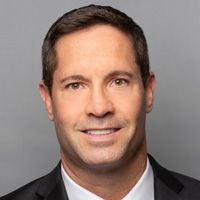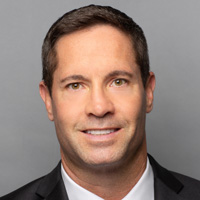Finding a Modern Financial Adviser: 3 Questions to Ask
Today’s challenging economic climate calls for a financial adviser equipped to adapt. Here’s how to see if yours is up to the task.


Profit and prosper with the best of Kiplinger's advice on investing, taxes, retirement, personal finance and much more. Delivered daily. Enter your email in the box and click Sign Me Up.
You are now subscribed
Your newsletter sign-up was successful
Want to add more newsletters?

Delivered daily
Kiplinger Today
Profit and prosper with the best of Kiplinger's advice on investing, taxes, retirement, personal finance and much more delivered daily. Smart money moves start here.

Sent five days a week
Kiplinger A Step Ahead
Get practical help to make better financial decisions in your everyday life, from spending to savings on top deals.

Delivered daily
Kiplinger Closing Bell
Get today's biggest financial and investing headlines delivered to your inbox every day the U.S. stock market is open.

Sent twice a week
Kiplinger Adviser Intel
Financial pros across the country share best practices and fresh tactics to preserve and grow your wealth.

Delivered weekly
Kiplinger Tax Tips
Trim your federal and state tax bills with practical tax-planning and tax-cutting strategies.

Sent twice a week
Kiplinger Retirement Tips
Your twice-a-week guide to planning and enjoying a financially secure and richly rewarding retirement

Sent bimonthly.
Kiplinger Adviser Angle
Insights for advisers, wealth managers and other financial professionals.

Sent twice a week
Kiplinger Investing Weekly
Your twice-a-week roundup of promising stocks, funds, companies and industries you should consider, ones you should avoid, and why.

Sent weekly for six weeks
Kiplinger Invest for Retirement
Your step-by-step six-part series on how to invest for retirement, from devising a successful strategy to exactly which investments to choose.
Whether it’s political unrest, a Black Swan event, a housing crisis or a global pandemic, there are very few “normal” years in the world of finance anymore. In the “post normal economy,” as Barry Ritholtz frames it, financial advisers need to be different than those of yesterday.
Markets are more unpredictable. Volatility has become the norm. Digital asset markets never close. Those are just a few of the elements that have made investing even more challenging. Now, more than ever, it’s important that you have a financial professional on your side who can stop you from making decisions that you might regret. The onset of the pandemic is one example. Nearly all my clients called me wanting to sell out of equities on the exact same day. In the 33 days between February 19 and March 23 the MSCI World Index fell by 34%, and my clients seemingly had reached their breaking point. Did we sell? After a thoughtful discussion the answer is mostly no, and I can tell you that I had many of them thanking me six months later.
My point is that investors’ needs are changing. Financial advisers must continue to adapt and evolve with the individuals and families they serve. While it is also important that your financial adviser is in good standing with the SEC, has high integrity, always puts your best interests first and is an expert when it comes to your financial planning needs, I'd argue that those are table stakes – financial advisers of tomorrow need to be so much more.
From just $107.88 $24.99 for Kiplinger Personal Finance
Become a smarter, better informed investor. Subscribe from just $107.88 $24.99, plus get up to 4 Special Issues

Sign up for Kiplinger’s Free Newsletters
Profit and prosper with the best of expert advice on investing, taxes, retirement, personal finance and more - straight to your e-mail.
Profit and prosper with the best of expert advice - straight to your e-mail.
Below is my list of three questions to ask yourself when deciding if a financial adviser possesses the qualities you should have at your disposal in the post-normal economy:
Are they a personality fit?
It’s imperative that your financial adviser can anticipate your needs and understands how you may react to worldly factors that may impact your portfolio. Your financial adviser should take the time to know you on a personal level, not just your portfolio. Do they understand your lifestyle? Your family dynamics? Having a deeper understanding of who you are will help them stay one step ahead and communicate with you on the proper channels during turbulent times.
One anecdote that can help portray my thinking is a story of a client of mine who was extremely politically oriented. When Barack Obama was re-elected to serve his second term, this client wanted to sell everything and wait it out. I was adamantly against selling out of their portfolio and backed up my advice with historical data. Hindsight is 20/20, and I will be the first to admit that I’m not always right, but in this specific case the market yielded strong returns each of the following four years and the Dow Jones Industrial Average notched 118 new highs. The point being, if I didn’t push back, that client would have missed out on market returns that they could never have made up.
Are they able to build a relationship deeper than the adviser-client dynamic?
It all comes down to trust. Do you feel that your financial adviser is going to always act in your best interest? It goes beyond being a fiduciary; you must feel like your financial adviser deeply understands your personal needs and goals. Do you feel that your financial adviser is your confidant? Your friend? They need to be more than that. You should feel like your financial adviser is an extension of your family.
While I don’t believe that you have to loop in your financial adviser for all of life's financial decisions, it’s important that you see them as part of your “inner circle” and that they are not someone who you speak to quarterly to discuss your portfolio and your financial plan. In today’s 24/7, always-on world, your financial adviser should be someone you are communicating with regularly and you connect with them on a personal level.
Are they able to offer a diversified investment portfolio?
In today's market environment it is extremely important to diversify your portfolio outside of stocks and bonds. In fact, the traditional 60/40 portfolio is dead. If your financial adviser isn’t providing creative strategies to diversify your portfolio and invest in alternative assets, then they aren’t providing their clients with modern financial advice.
Investors need an inflation hedge and an alternative to fixed income and traditional equities.
To truly diversify, and give yourself the opportunity to experience outsized returns, you need to be investing in alternatives, including venture capital, real estate and private equity.
Amid the Ukraine-Russia war and coming off the heels of a global pandemic, it’s impossible to predict the next crisis that will rattle the markets. But there’s one thing for certain – there's nothing “normal” about your financial life. To protect yourself and your hard-earned portfolio, make sure you are working with a financial adviser who possesses the above qualities. If there’s anything to be picky about in life, your financial adviser should be at or near the top of the list.
Profit and prosper with the best of Kiplinger's advice on investing, taxes, retirement, personal finance and much more. Delivered daily. Enter your email in the box and click Sign Me Up.

Tyler Robuck is a managing director–financial adviser at Manhattan West, where he provides tailored wealth management solutions to high-net-worth clients, entertainers and small-business owners. He brings a wealth of experience, knowledge, energy and compassion to help clients achieve their goals. Having worked through myriad market cycles, he prides himself on being a clear and steady voice in periods of growth and volatility. Outside work, Robuck enjoys meditation and is a yogi.
-
 5 Vince Lombardi Quotes Retirees Should Live By
5 Vince Lombardi Quotes Retirees Should Live ByThe iconic football coach's philosophy can help retirees win at the game of life.
-
 The $200,000 Olympic 'Pension' is a Retirement Game-Changer for Team USA
The $200,000 Olympic 'Pension' is a Retirement Game-Changer for Team USAThe donation by financier Ross Stevens is meant to be a "retirement program" for Team USA Olympic and Paralympic athletes.
-
 10 Cheapest Places to Live in Colorado
10 Cheapest Places to Live in ColoradoProperty Tax Looking for a cozy cabin near the slopes? These Colorado counties combine reasonable house prices with the state's lowest property tax bills.
-
 Don't Bury Your Kids in Taxes: How to Position Your Investments to Help Create More Wealth for Them
Don't Bury Your Kids in Taxes: How to Position Your Investments to Help Create More Wealth for ThemTo minimize your heirs' tax burden, focus on aligning your investment account types and assets with your estate plan, and pay attention to the impact of RMDs.
-
 Are You 'Too Old' to Benefit From an Annuity?
Are You 'Too Old' to Benefit From an Annuity?Probably not, even if you're in your 70s or 80s, but it depends on your circumstances and the kind of annuity you're considering.
-
 In Your 50s and Seeing Retirement in the Distance? What You Do Now Can Make a Significant Impact
In Your 50s and Seeing Retirement in the Distance? What You Do Now Can Make a Significant ImpactThis is the perfect time to assess whether your retirement planning is on track and determine what steps you need to take if it's not.
-
 Your Retirement Isn't Set in Stone, But It Can Be a Work of Art
Your Retirement Isn't Set in Stone, But It Can Be a Work of ArtSetting and forgetting your retirement plan will make it hard to cope with life's challenges. Instead, consider redrawing and refining your plan as you go.
-
 The Bear Market Protocol: 3 Strategies to Consider in a Down Market
The Bear Market Protocol: 3 Strategies to Consider in a Down MarketThe Bear Market Protocol: 3 Strategies for a Down Market From buying the dip to strategic Roth conversions, there are several ways to use a bear market to your advantage — once you get over the fear factor.
-
 For the 2% Club, the Guardrails Approach and the 4% Rule Do Not Work: Here's What Works Instead
For the 2% Club, the Guardrails Approach and the 4% Rule Do Not Work: Here's What Works InsteadFor retirees with a pension, traditional withdrawal rules could be too restrictive. You need a tailored income plan that is much more flexible and realistic.
-
 Retiring Next Year? Now Is the Time to Start Designing What Your Retirement Will Look Like
Retiring Next Year? Now Is the Time to Start Designing What Your Retirement Will Look LikeThis is when you should be shifting your focus from growing your portfolio to designing an income and tax strategy that aligns your resources with your purpose.
-
 I'm a Financial Planner: This Layered Approach for Your Retirement Money Can Help Lower Your Stress
I'm a Financial Planner: This Layered Approach for Your Retirement Money Can Help Lower Your StressTo be confident about retirement, consider building a safety net by dividing assets into distinct layers and establishing a regular review process. Here's how.